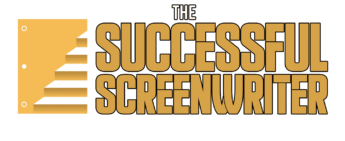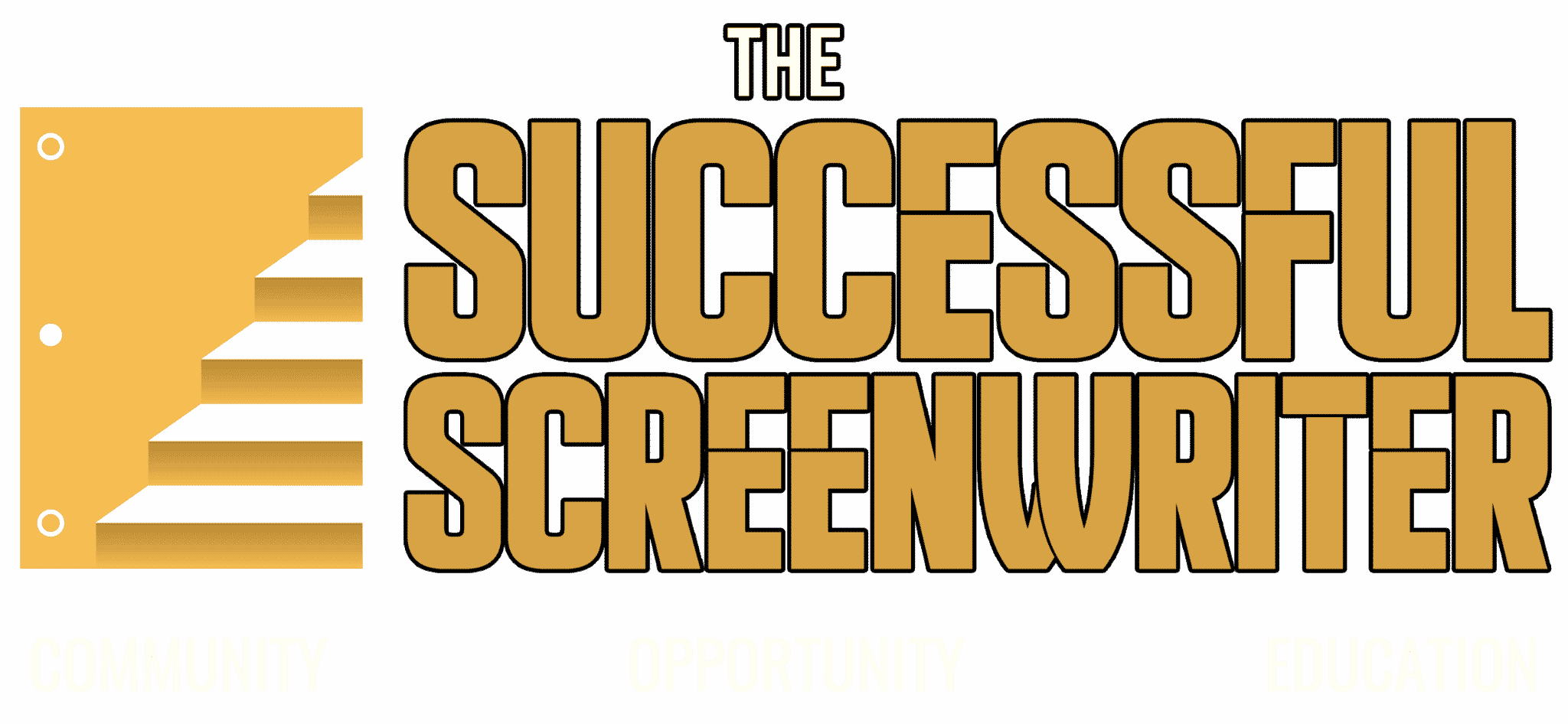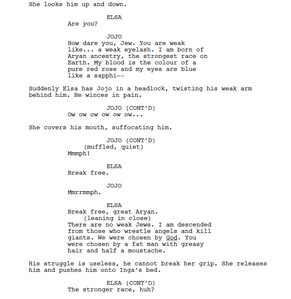The tension in this scene combined with Elsa's dialogue is incredible. It gave me chills. The entire film has been built up to this point. Even the visual of a 15-year-old female taking on a small 10-year-old boy reveals so much about what each of them is fighting for and their true beliefs. Jojo is fascinated with Nazism in the way a child would be fascinated with a comic book superhero. He doesn't realize what he's saying. He's just repeating propaganda that has been fed to him. Earlier in the script, he was asked to spread propaganda and didn't even know what the word meant. Elsa is not just fighting to survive. She is fighting for her people for her culture and religion. The size difference between the two of them reaffirms this visually.
Admittedly, I still haven't seen this film (it's on my list) but I'm very familiar with Taika Waititi and I completely agree with you that his voice comes through.
The intro is great. It tells you everything you need to know with very few words and one simple visual. You can immediately relate to Jojo's innocence but the contrast is intriguing and stirs up a lot of emotion. It reminds me of going to Catechism/Church, reciting lines I didn't understand and making gestures like the sign of the cross with perfect precision.
As a kid, your primary goal is to be the best at whatever new thing you've learned...to make a good impression...to earn love and praise. And you're always seeking someone to model your behavior after. Trying so hard to understand where you fit in the world.
This is a great analysis. Keep them coming!
I chose JoJo Rabbit because when it was released I was excited to go see it. But, after a few bad reviews I changed my mind. Then, it was nominated for an Academy Award. I should have gone with my gut from the previews.
With that being said, I still have not seen the film. Nor, do I want to until we have completed this script study.
The opening, the first five pages, is brilliant. We know from history that Nazism is horrific. But, we can't help but feel JoJo's child like excitement of being part of an engine larger than himself. He is childlike in the midst of what we know to be a horror. The horror aspect of his reality is slowly revealed to him and we are along for the journey.
Even though the irony is strong, the comedy really comes out on page 4 with the scene of the Nazi youth gathered in the room together getting the itinerary for the camp.
The montage from pages 4-5 were a little confusing to me with format, because every screenwriting page I have ever visited has a slight variation on how to write montages. Waititi's is very general in the location, but specific with the action.
I love the scene where Jojo is talking tough to his "second best friend" and how he would kill a Jew without a second though. Then, the very next scene is how he is afraid to kill a rabbit with his hands. Just brilliant contrast between Jojo's words and actions.
I also like the use of mirrors in the beginning and afterward when it is a constant reminder to Jojo of his injuries. Reality is reflecting back to him.
His mother is the mentor figure and so much more in this script. I've only read to page 40 so far, but I am curious where her motivation lies between the silly behaviors for her son and her more ulterior motives. The story starts off simply, Jojo and his adventure in the Hitler youth, and is slowly expanding into a more complex adult world.
So far I have noticed that Waititi is brilliant at spinning all these scenes to subvert our expectations, but still keeping the focus on Jojo and his perception of his world. The us of dream Hitler as projection and a confidante to Jojo is just brilliant writing and filmmaking. It's what makes this a comedy, rather than a tragedy.
Some formatting issues I noticed is that Waititi gets away with rather large block lines of action. It was originally written on March 15, 2012, so I would ask him if he always planned to direct the work himself.
I know this is long.
What are your thoughts of Jojo's journey so far?
Waititi use of mirrors and irony? And, dream Hitler's comedy and presence in Jojo's life? Is Hitler a surrogate father figure? Best friend? What is up with his dad being missing and his sister dying? Death surround Jojo, how does that impact him?
Looking forward to hearing your comments. And, I'll try Geoffrey's trick with inserting excerpts next time.




